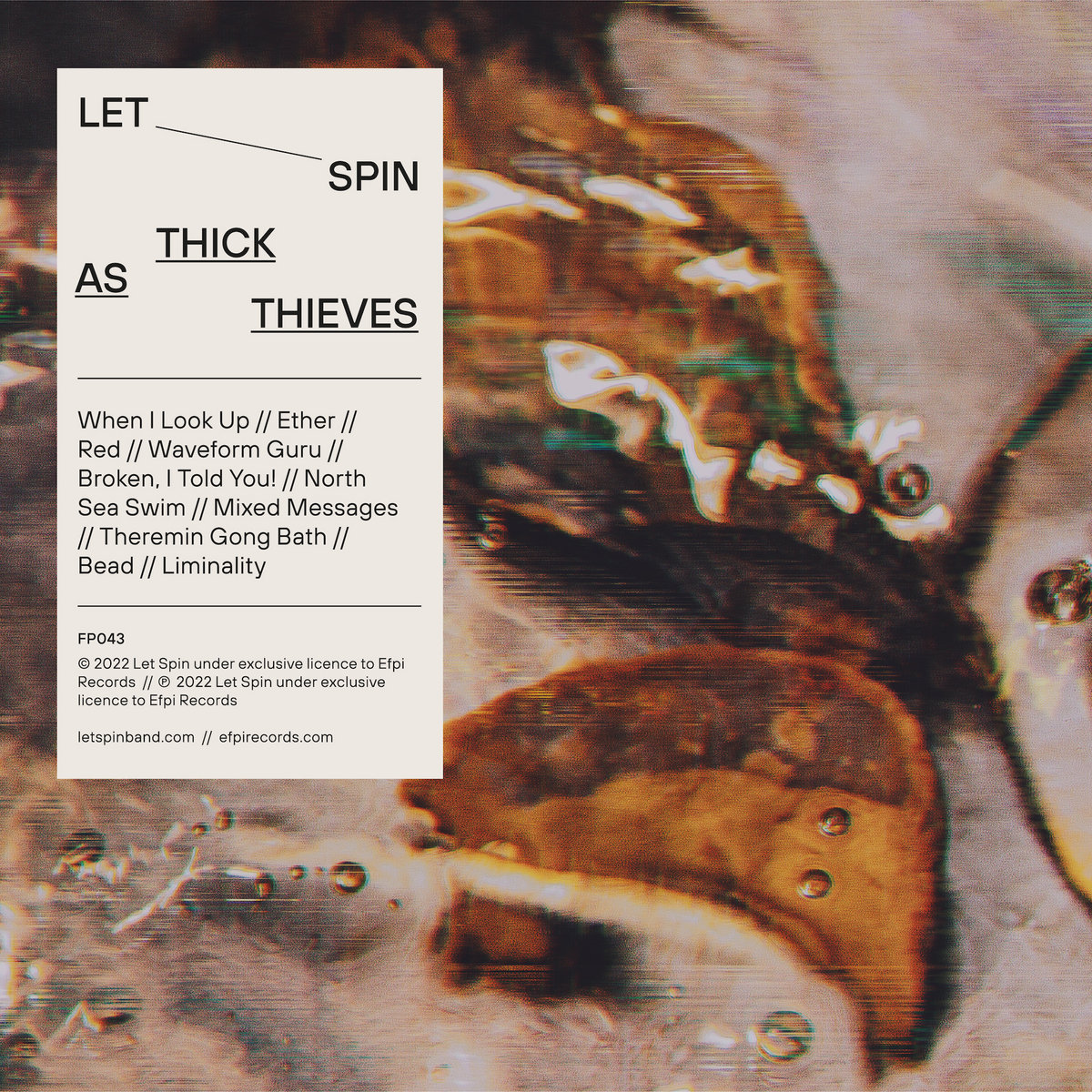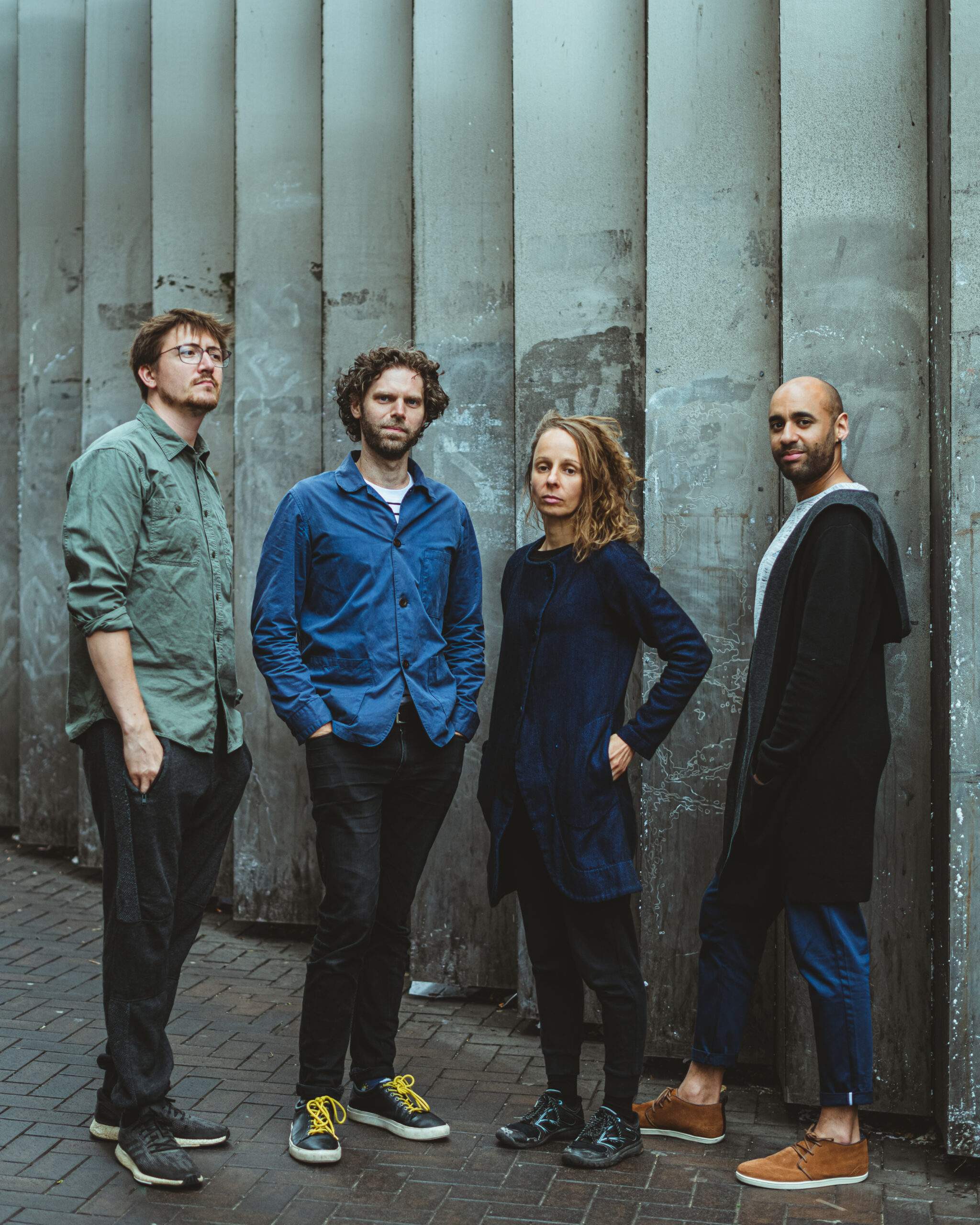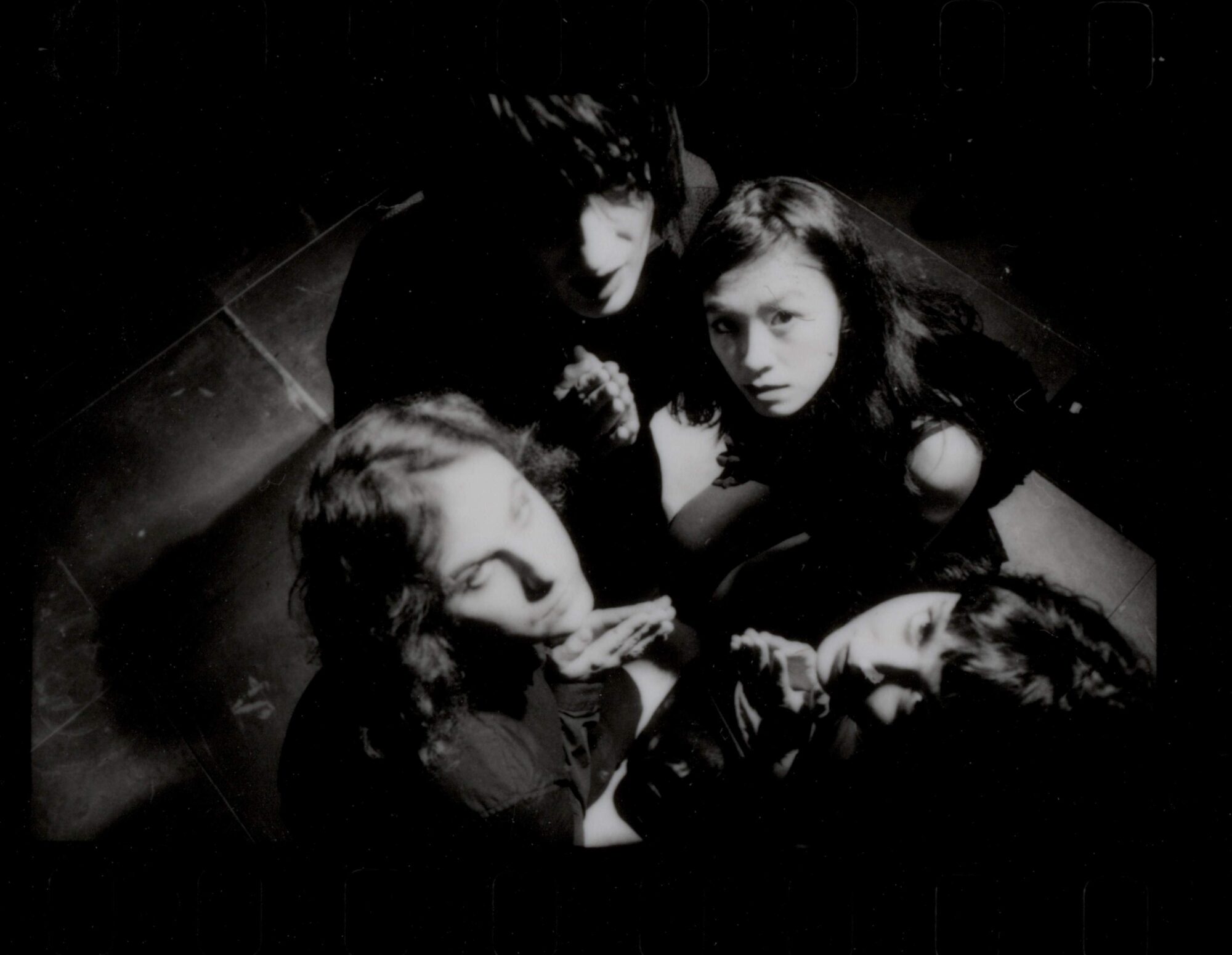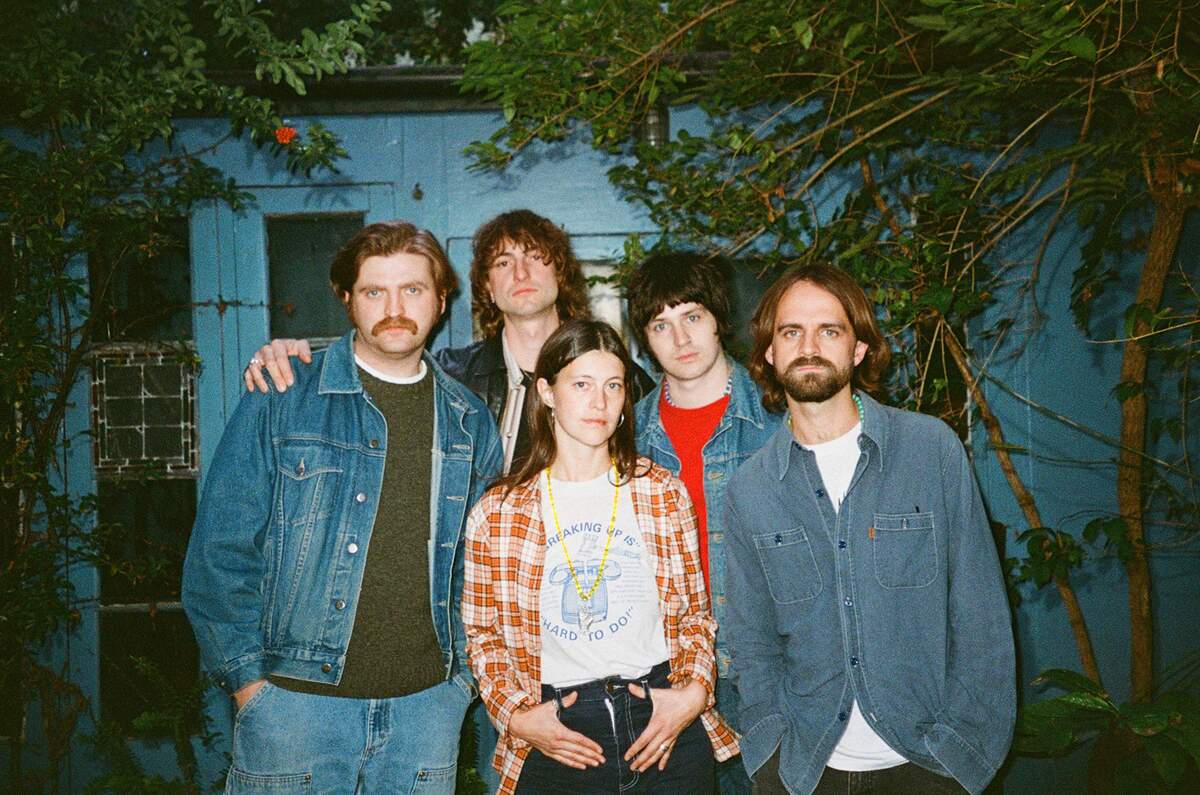Let Spin | Interview | New Album, ‘Thick As Thieves’
‘Thick As Thieves’ marks a decade since Let Spin’s formation and is the band’s fourth album release.
Formed in 2012, Let Spin are a super-group featuring some of the most highly acclaimed UK jazz and new music musicians. The album marks a divergence for the band in terms of working methods and features adventurous post-rock, experimental jazz music. The band’s new album, ‘Thick As Thieves’, represents an exhilarating departure in terms of working methods and an opportunity to capture their thrilling live show in the studio.

Let Spin:
Chris Williams – alto saxophone
Moss Freed – guitar and baritone guitar
Ruth Goller – bass
Finlay Panter – drums
In support of the release Let Spin are embarking on a UK tour for 2023:
Sat 11th Feb – The Hive, Shrewsbury
Mon 13th Feb – The Bell Inn, Bath
Wed 15th Feb – Lescar, Sheffield
Thur 23rd Mar – Free Range, Canterbury
Sat 25th Mar – The Rose Hill, Brighton
“We really wanted to change the way we made music for this record, to go much more towards an improvised approach”
How long did you work on your latest album, ‘Thick As Thieves’?
Chris Williams: The material came about relatively quickly though it feels as if we’ve been working towards this new way to approach material in the studio across our previous releases, and especially since our tour in early 2020. Those dates in Europe saw us trying out segueing through pieces with more open improv for the first time and we loved it; it just felt so natural for us to combine and move between our pieces in this way. Once we’d decided in the summer 21 to record in September that year, and agreed on a more open approach to recording the album, we got to work on writing the new material.
Moss Freed: We released our last record in the spring of 2020, which took a long time to bring to fruition and, in the end, we didn’t really have a chance to gig it. It felt like we’d changed a lot, individually and as a band, in that time and that we had begun to play in a quite different way. We were excited to get back into the studio to document this.
Can you share some further words about the recording and creation process for it?
Moss Freed: We really wanted to change the way we made music for this record, to go much more towards an improvised approach to composition, more like the way we perform live. The idea was to each bring some materials and that we would move between them as we desired in the moment. That means some materials may not end up being used, others may be referred to briefly and then abandoned, others still might get more focus and all the while we improvise as a default. When we first got together in a rehearsal room to work on this, there was no real expectation or idea of what each person would bring. In the event, there was a mixture: some snippets; grooves; sketches or ideas; and some much more developed pieces with their own structures. Because of covid, we hadn’t played together for quite a while and had had the chance to listen to a lot of music. So, the ideas that people brought were the most varied stylistically that we’ve ever had. After a few days of rehearsal and a few gigs we felt comfortable with this new approach and so in the studio, we recorded four long takes – around 45 minutes each – live, alongside individual takes of some of the more developed compositions and then edited together a version that became the album.
Chris Williams: Another key component to this record was having music producer Alex Killpartrick’s input. He’s either mixed or mastered every Let Spin record and with each one we’ve encouraged and embraced him having increasingly more licence to shape the record. We love how he hears our tracks and places them in more distinct sound worlds. Alex is very much a part of the creative process.

“We wanted the record to capture the band whilst in transition”
Would you say you were aiming for a certain concept behind it?
Chris Williams: We wanted the record to capture the band whilst in transition, to capture some of the most exciting moments that we’d experience on-stage whilst moving between pieces and, eventually, moving towards not even having the destination set. As we grew in confidence with playing 45min sets of continuous music on-stage, we knew that this was how we wanted to present the record: an album that celebrates the journey equally as much as the destination.
How would you compare it to your previous work?
Chris Williams: This album marks a big shift from our previous works. With our earlier records, we focused on recording and performing one piece at a time, so there is that clear difference but there’s more to it than that. You can hear that it’s still us, the same key components are there but it’s as if now we’re seeing the full picture. The band’s collective improvisation sound combined with each member bringing in their own styles through their compositions has always been one of the band’s strengths. With this record, I feel like we’ve been able to modify and amplify this, moving collectively in ways that were previously left unexplored.
How do you typically approach music making?
Chris Williams: This band has always been about each member bringing a voice, a colour, a vibe, a texture that plays an undeniable part in shaping the whole. We all share this space and all have an impact on the push and pull of where we end up. With the compositions, I guess that over the years we’ve all developed a sound world or style of piece that we’d bring to the table, though with this record having fewer ‘complete’ pieces, there was more scope for us to bring different ideas. During the rehearsals, we realised that we didn’t have much groove-based material, which then shaped what we could bring in for the next play. Even with each member bringing in material, the collaboration and workshopping in the rehearsals and on the road continued to help shape the music. With the improvisation, we can count on having an established band sound and are all fairly confident improvisers that we feel comfortable seeing how the music evolves organically on the night as well as across a number of shows. It’s always fascinating how our music develops over a run of concentrated dates. However, we also debrief after shows, sometimes suggesting ways that we can explore different combinations, or reaffirm the trust in leaving space for others to step in and for new things to emerge.

“Music doesn’t have to be defined by the listener as composed or improvised”
What are some of the most important players that influenced your own style and what in particular did they employ in their playing that you liked?
Chris Williams: Focussing on the alto sax, I’d have to say Steve Coleman and Tim Berne with their biggest influence being their strength of personality. Through their compositions, improvisations, tone and all-round approach to the sax, their voices are so unique; there is a beauty in their conviction which I greatly admire.
Ruth Goller: Bill Frisell’s music has always been a big companion for me. His freedom in improvisation and being able to flow through compositions, sometimes unclear whether something is written or not, this is very inspiring to me. Music doesn’t have to be defined by the listener as composed or improvised, and I think with this record we have moved more towards this way of writing and playing.
Finlay Panter: The drummers who have influenced me most recently are Jim Black and Brian Blade. I love how Jim Black mixes groove and improvisation together seamlessly. Brian Blade is simply an excellent musician. I’m incredibly inspired by his feel and his use of dynamics on the drums.
Moss Freed: For me, it’s much less about the guitar per se (although Bill Frisell, Marc Ribot, Mary Halvorson, Tom Morello, Fred Frith, Derek Bailey and many others are important to me for different reasons) but more about the creative vision and overall approach towards composition, improvisation and sound that I get most inspiration from. The work of composer/performer/improvisers like Anthony Braxton, John Zorn, Ornette Coleman, Pauline Oliveros & Cath Roberts has impacted me hugely, each highlighting different focal points and priorities in regards to how these areas can feed off one another and coalesce.
Klemen Breznikar
Let Spin Official Website / Facebook / Instagram / Twitter / Bandcamp / YouTube
Efpi Records Official Website / Facebook / Instagram / Twitter / Bandcamp / YouTube
‘Liminality Long Play Take 4’ by Let Spin | New Album, ‘Thick As Thieves’




